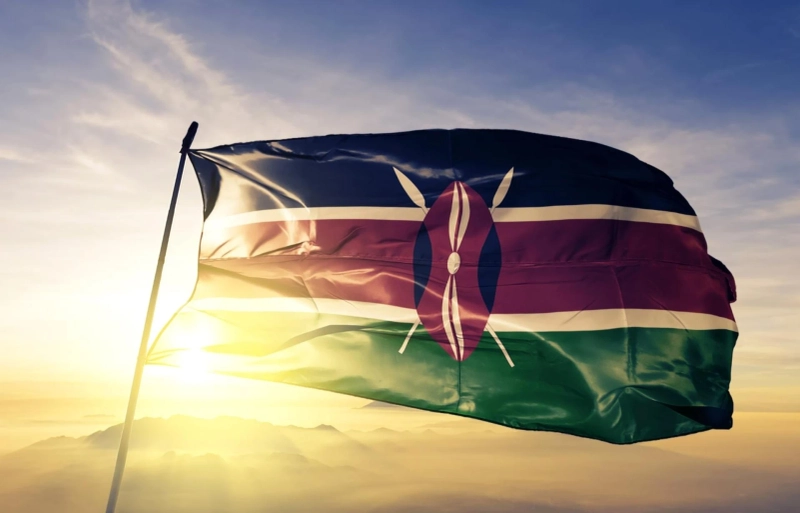Kenya offers a blend of African, Arab, and Indian cultures, as well as being the cradle of mankind and home to diverse wildlife. It is renowned for its lush greenery, owing to the vast number of trees that thrive in the country, including the Kakamega Forest, Burning Forest, and Mau Forest, some of the largest rainforests. The Kakamega Forest is home to a variety of rare butterfly and snake species, making it a unique woodland. Along with witnessing the Big 5, visiting Kenya is regarded as an essential travel experience.
Do you dream of a Safari in Africa or a luxury Kenyan safari tour? Record numbers of tourists are coming to Kenya each year to see the country's remarkable wildlife. Here are travel guides and tips to know before your trip, whether you're going on safari, beach holiday or city break. Despite what you may have heard, Kenya is a safe and welcoming destination for visitors from all over the world. Follow these simple tips and enjoy your stay!
Getting Ready
Visa requirements for numerous countries may have changed since the onset of the COVID-19 pandemic. Although some countries previously granted visas on arrival, this may no longer be the case. To avoid any complications, it is essential to check the official Kenyan visa website and give yourself ample time to complete the application process. Random inspections may result in additional questioning even after submission and payment. To track the progress of your application, you must log in, as confirmation of your application and payment will not be sent via email.
Once your visa and payment have been approved, it is recommended that you print out a coloured copy (or two) and keep it with you at all times, particularly if you plan on taking internal flights, such as those between Nairobi and Mombasa. Before departing, check the latest admission criteria to see if you are required to upload your COVID-19 test results, health certificate, and proof of vaccinations.
If you are planning on an early-morning safari in Kenya, it is a good idea to pack warm clothing, as the temperature may become chilly. Similarly, for the highlands, where the temperature may drop at night, it is recommended to bring fleeces and windproof waterproofs. Conversely, if you are in the city or by the shore, it is important to keep cool, especially during hot days, by wearing breathable clothing.
To comply with Kenya's ban on single-use plastics, it is recommended that you avoid bringing any carrying bags, single-use plastic water bottles, and straws during your visit. The ban covers the entire country, and plastic bag inspections are common, so refrain from packing shoes or other items in plastic bags. Additionally, national parks have prohibited the use of straws and single-use plastic bottles, so it's best to bring a reusable water bottle from home.
When You Are In There
Malaria is a concern in many parts of Kenya, but in Nairobi and highland areas above 2500m (8200 ft), the risk is low. Nonetheless, it's important to take measures to avoid mosquito bites. You can seek advice from a healthcare professional to determine which antimalarial drug is best suited for you. Options include atovaquone/proguanil, doxycycline, or mefloquine. However, it's advisable to consult with a doctor, pharmacy, or travel clinic before using Malarone or Lariam, which are two commonly known brand names.
When visiting Kenya, understanding some basic Swahili phrases can be helpful in social interactions. The most common greeting is "jambo," but if you want to impress the locals with your linguistic skills, try using "mambo vipi" instead. It's a Swahili-English combination that is popular among Nairobi's younger generation. The usual response to this is "poa." Alternatively, you can say "niaje," and you will likely receive the same response.
In Kenya, bargaining is a common practice in marketplaces and certain stores. Many vendors will start with a higher price, so it's acceptable to offer a lower amount. Negotiating can be entertaining, and it's an excellent opportunity to find a fair deal. However, be mindful of how much you're willing to spend and don't negotiate excessively. Humour can also be a helpful tool when bargaining, and it's an excellent way to engage with the vendors. Remember that some vendors may decline an offer that is too low, so have fun with it and be respectful of their livelihood.
Custom And Tradition You Should Know
Tipping is not a customary practice in Kenya, but it's a kind gesture if you have received exceptional service. At hotels, you may tip cleaning and porter staff between Ksh100 and Ksh200 (between $2 and $4) per day, or round up the amount at the end of your stay. When shopping at markets, keep spare coins on hand for small purchases and gratuities. While tipping is not mandatory, it's customary to round up to the nearest $100 when taking a cab. If you use taxi apps, you can tip the driver through the app after the ride. However, avoid paying for special treatment in exchange for money.
In Kenya, taking photos of individuals without their permission, particularly in rural areas, is considered impolite. It's courteous to seek permission and carry a consent form with you, even if you plan to post the images on social media. Say "asante" (thank you) and show the image to children or vulnerable individuals after obtaining permission. When entering unfamiliar buildings such as schools, it's essential to exercise caution and be respectful.
Although Kenya is a relatively conservative country, knee- and shoulder-covering attire is not required all the time. In Nairobi, towns, and safari, it's acceptable to wear shorts, skirts, and sleeveless tops. Beach resorts usually allow the same attire, but it's not appropriate to wear swimwear outside of the beach area. In Muslim areas such as Lamu Town, it's suggested to dress more modestly. Loose-fitting clothing is recommended for comfort in hot weather.
Other Tips That Is Useful To Know
Nairobi is a bustling city that moves at a fast pace, much like any other large metropolis. However, it is important to note that life in coastal regions, such as Mombasa, Malindi, and Lamu, may be slower due to the heat and humidity. To avoid frustration, it is best to embrace the "pole pole" (Swahili for "slowly") way of life and not expect things to happen quickly.
Tap water is safe to drink in Kenya, but if you prefer, you can boil the soft, sweet water from the tap and let it cool before drinking it. Filtered water is also readily available in restaurants and hotels. Rather than purchasing disposable water bottles, it is recommended that you bring a reusable bottle and filter to reduce plastic waste.
If you rely heavily on your smartphone, it is a good idea to bring a power bank to ensure that it is always charged. Power outages can occur in Kenya, but they are usually short-lived in most areas. When going on safari, it is advisable to bring a backup battery for your DSLR camera and a reliable flashlight for nighttime excursions around the safari camp and in case of power outages. Headlamps are also useful when camping for reading and for overnight restroom trips.
Kenya is a safe country for tourists, with few instances of harm occurring to visitors, especially in game reserves and other tourist destinations. However, certain areas should be avoided, such as Garissa County and Lamu County (with the exception of Lamu Island and Manda Island), and it is recommended to take a flight if travel is necessary. It is also important to be aware of the latest regulations from your government and to keep your belongings secure and remain vigilant, particularly in Nairobi and other cities.
A Luxury Kenyan Tour
Knowing how to reach your country's embassy or consulate is smart wherever you are. Take pictures of your passport, visa, and other important documents, such as your proof of immunisation, and store them on your phone and in an email so you can access them quickly. If at all possible, keep an original form of identification on you. If you don't want to carry your passport, a driver's licence might be helpful.
If you are looking to explore Kenya, consider some of the best tourist destinations in the country. From luxury safari tours to pristine beaches and world-famous wildlife reserves, there is something for everyone in this beautiful East African country. Contact Destinations Africa today if you want to experience all that Kenya has to offer on your next holiday. They can help plan an unforgettable trip that will leave you feeling like a true Kenyan insider!


